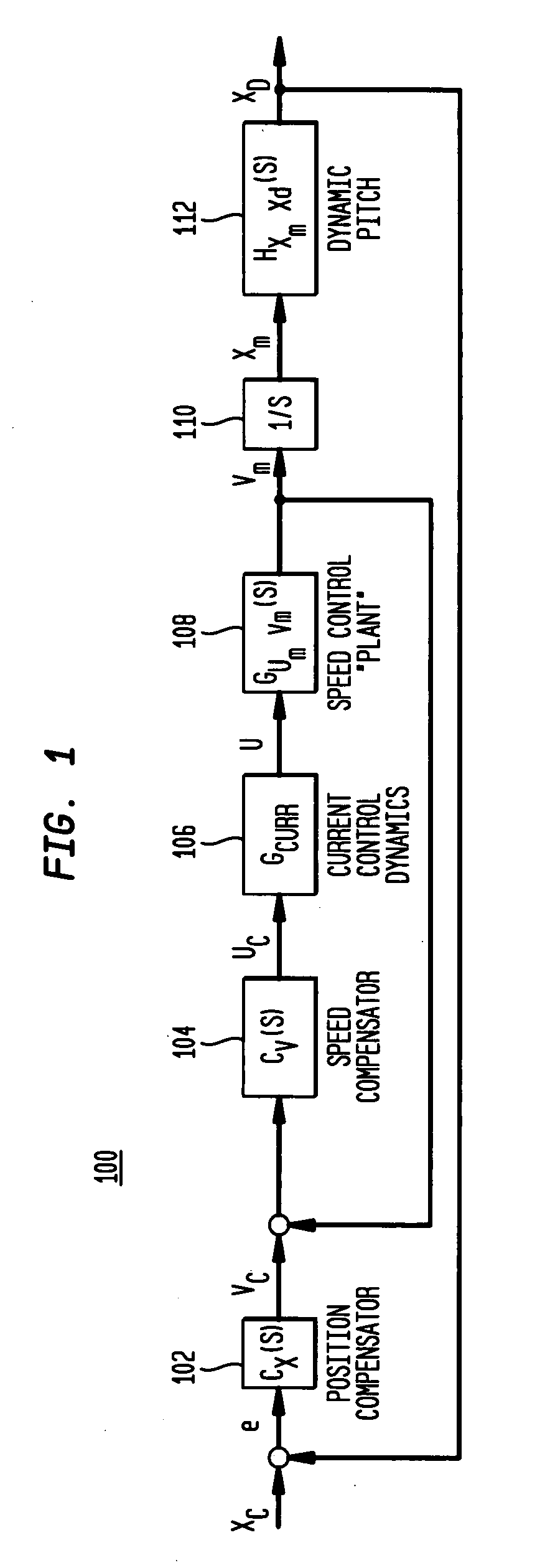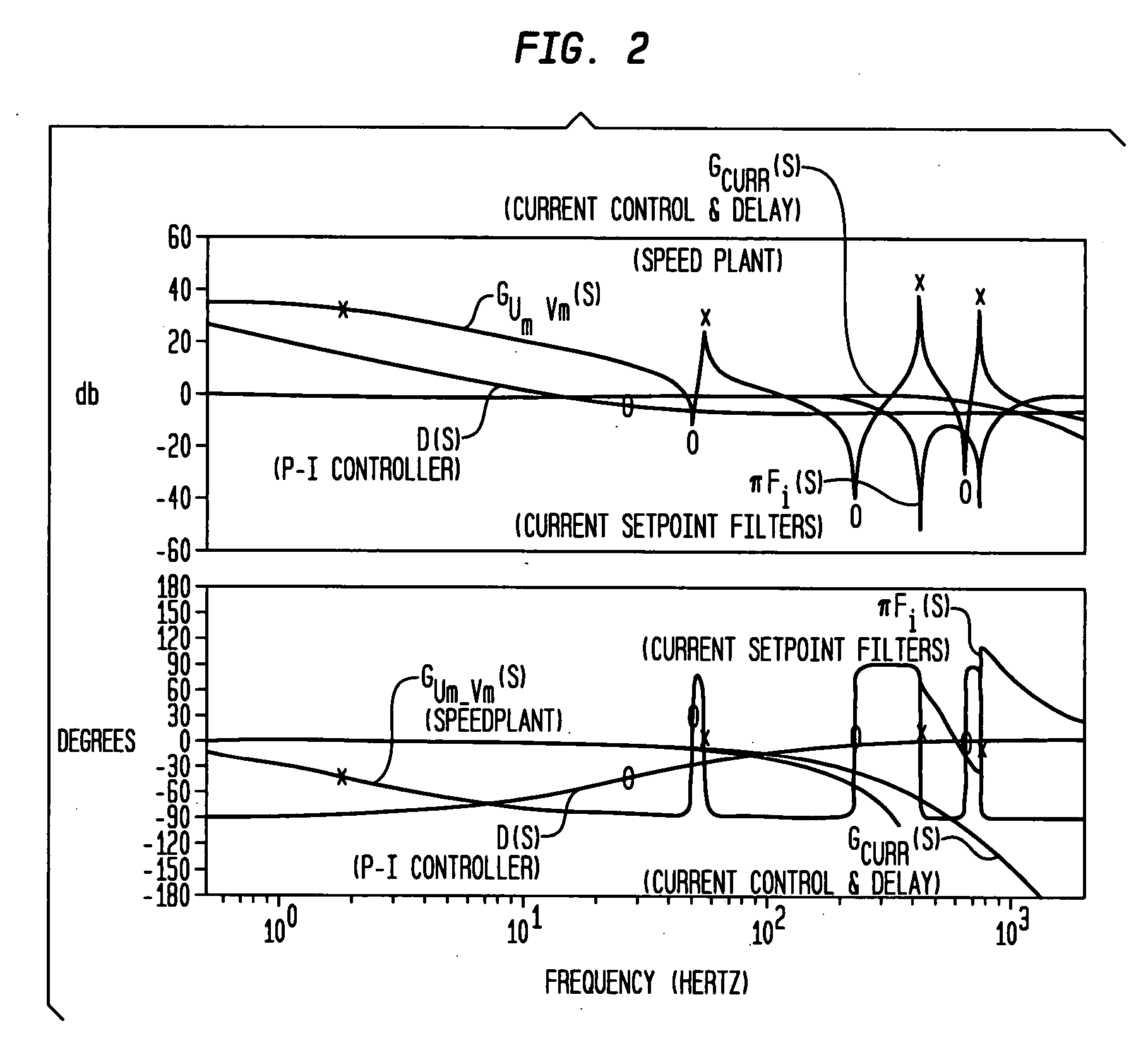Automating tuning of a closed loop controller
- Summary
- Abstract
- Description
- Claims
- Application Information
AI Technical Summary
Benefits of technology
Problems solved by technology
Method used
Image
Examples
Embodiment Construction
[0015] A set of methods for automated selection of the portion of the controller known as the speed loop compensator is disclosed. Specifically, outlined is a methodology for simultaneous selection of filters and loop proportional gain for systems that exhibit resonance effects. The exemplary methods operate on a Frequency Response Function (FRF) that represents the dynamic response from an actuation force (e.g. motor torque) to the sensor used for feedback of speed control (e.g. motor encoder angle). The FRF may be represented as a series of complex numbers each with a corresponding frequency value. The tuning method may determine the combination of filter parameters that allows the loop proportional loop gain (Kp) to be maximized while meeting a specified set of criteria for stability margins. Methods for selecting integral gain and reference model are also presented. The methods may be implemented in an object oriented software environment in order that the software implementatio...
PUM
 Login to View More
Login to View More Abstract
Description
Claims
Application Information
 Login to View More
Login to View More - R&D
- Intellectual Property
- Life Sciences
- Materials
- Tech Scout
- Unparalleled Data Quality
- Higher Quality Content
- 60% Fewer Hallucinations
Browse by: Latest US Patents, China's latest patents, Technical Efficacy Thesaurus, Application Domain, Technology Topic, Popular Technical Reports.
© 2025 PatSnap. All rights reserved.Legal|Privacy policy|Modern Slavery Act Transparency Statement|Sitemap|About US| Contact US: help@patsnap.com



